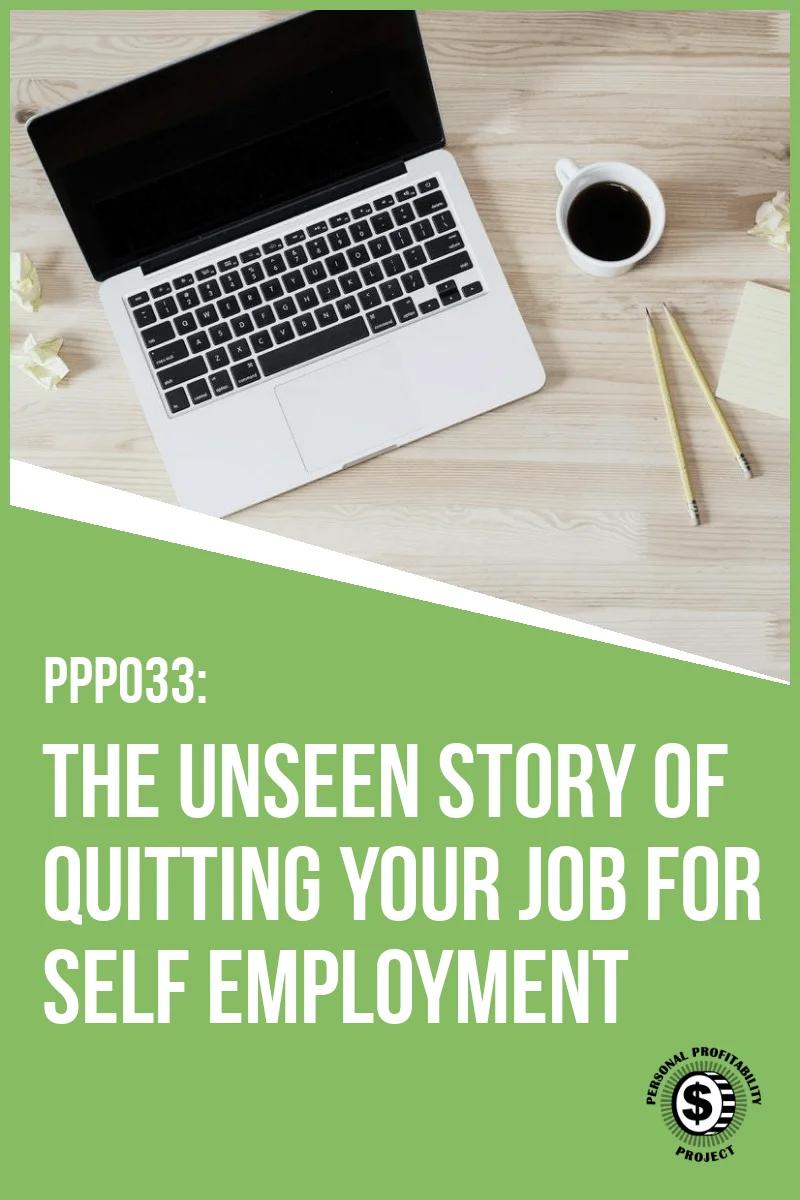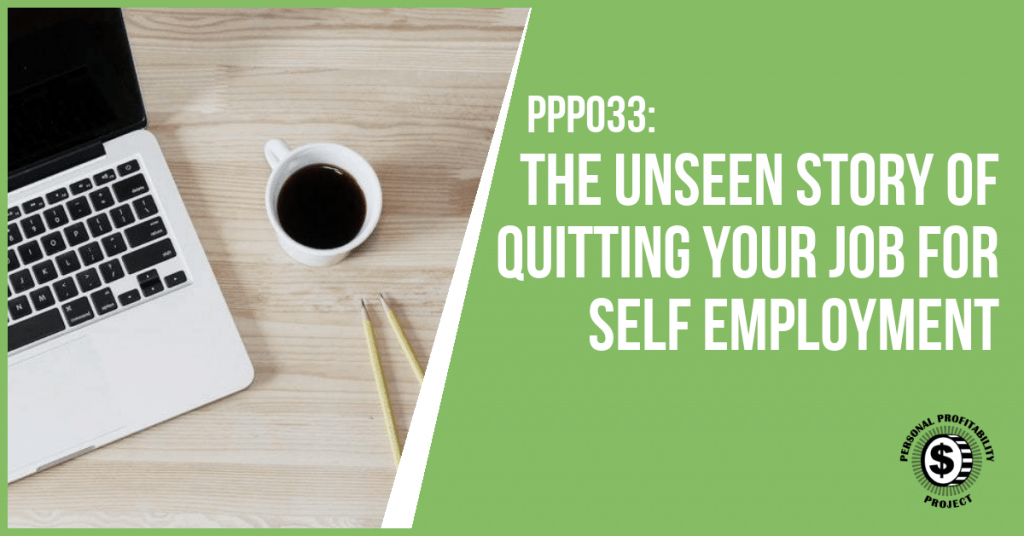Podcast: Play in new window | Download (Duration: 20:17 — 18.6MB)
Subscribe: Email | TuneIn | RSS | More
Leaving a big employer to start on a path of self-employment looks glamorous, but there are many aspects of leaving a job that you don’t get to see until you make the plunge. Here is an inside look at my experience in my first month as a full-time online entrepreneur, and answers to some common questions.
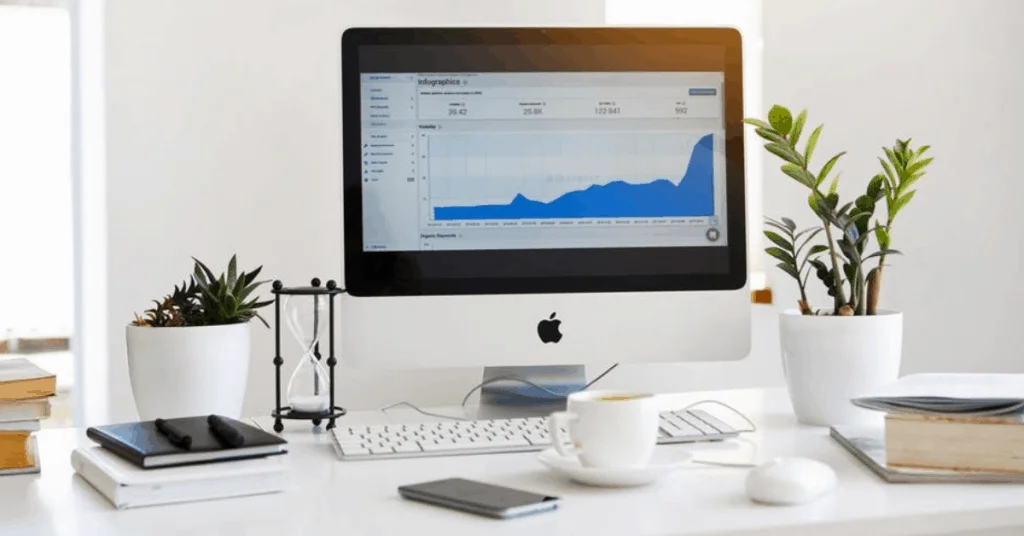
Resources Mentioned
Transcription
Eric Rosenberg: Ladies and gentlemen, boys and girls, children of all ages, welcome back to the Personal Profitability Podcast. As always I am your host, Eric Rosenberg. Today I’ll start off by saying sorry if my voice sounds a little hoarse. I’m actually recovering from a cold and a sinus infection I picked up. I don’t expect you to feel bad for me though because I picked it up while I was off on a trip working and playing in London and Paris. Sorry about that, the normal voice not sounding there…the voice not sounding normal. But please bear with me.
Establish a Foundation
Today I wanted to talk about as I answer some questions. A lot of readers and friends and family have been asking me about this whole transition from working for a big Fortune 500, company something that I’ve done more or less my whole career I’ve been working for Fortune 500 or at least Fortune 1000 companies, and now I am working for a company of one. That’s a huge transition on all sorts of things. So I wanted to answer some of the most common questions and talk a little bit about what it’s been like so far, about a month into this new self-employment adventure. Let’s dive in a talk about it.
First, a lot of people ask me what my income was like getting to this point. I do publish income reports every month on the blog. So you can go check those out. If you go to the show notes there will be a link to the page that has a summary of those. So you can check all those out on the website. But the general outline of how things have gone, I made my first dollar online actually in high school. I started to really seriously try to make income on the side, and that was all online through my websites, starting around 2008.
So this was not just an overnight thing. This is no get-rich-quick scheme. This is a lot of hard work and elbow grease. And for a lot of those years I was really working, it felt like a job and a half or two full time jobs. It was not come home and write a quick blog post and everything takes care of itself. Building up a business like this that you can support a family on involves not just writing – it’s marketing and networking and connecting with people. There’s so many parts to it. I had list off a half a dozen things any of which if they hadn’t happened, I wouldn’t be in this position today.
Build Connections
One of those things is connecting with a group called The Yakezie, that’s Y-A-K-E-Z-I-E dot com, started by my friend, Sam at FinancialSamurai.com. And without that group I would… that was when my blog really pivoted from being just a little hobby to something that are really just trying to focus on growing and building more of an income from. Working with that community I was doing something that I don’t really do as much of anymore, just a little, but there was a time that sponsored posts were a really little big thing for finance blogs. You could charge a whole bunch of money to write posts and link back to companies. I do that a little bit now but I’m a little more transparent. There’s different rules of how you do that. But back then it was kind of the standard thing so I made a whole bunch of money. That’s when I was like, ‘Wow, this is like, yes it’s covering all my beer’ and I drink a lot of beer back then, and covering all my rent and my mortgage. So that was one major factor that let me to get here.
Another one was connecting with the FinCon community. That’s the Financial Bloggers Conference which I talk about it seems like in just about every episode. But really, that was probably the next really instrumental thing and maybe the most important thing that got me from just making a few bucks from this into a full time online income. A lot of people say, ‘Is all this money coming from your blog?’ And the answer is no. It’s only, of all that income I make online, only about 10%, maybe a little less comes from PersonalProfitability.com through the affiliates and the companies I mention there. If people sign up for some of those I get a little referral fee. So I do make some money from this site but without that site I would not have connected with a lot of the big brands and companies that I work with. And again through that FinCon connection with all of those brands and people gave me a face to face time with businesses looking to hire people like me to write for their sites and create content.

Stand Out
One thing that really helped me stepped out from the crowd and I always want to come back to how important it is, is education – I’ve both an undergraduate finance degree and an MBA in Finance. And that really sets me apart from a lot of the other writers. A lot of the FinCon community got to where they are, they ended up with a bunch of debt and paid it off and shared their story online and people are like, ‘wow that’s awesome! I want to do the same thing.’ And I can’t say that I don’t somewhat fit in there. When I started my blog I didn’t have any debt but when I graduated from my MBA program I had $40,000 in debt and I paid that off in about two years. That got some people excited about me. But I’ve been writing for a while before that.
So a lot of people are just normal people that have an extraordinary story and that’s how they got into financial writing. But for me because I have those credentials I do. A lot of people who do a lot of the online writing are, they’re Journalism majors and English majors and writing majors. There’s nothing wrong with that but that is not a degree that I would want any of my kids to have. I’d rather them focus on the STEM degrees, the things that are really paying and doing well today – the Science, Technology, Engineering, Math; I’d lump Business into that, that’s what I did. The degrees that really will take you somewhere that will lead you to a job which is… another thing I wouldn’t be here if I hadn’t had that job the whole time that supported me while I was writing and doing all these on the side.
Anyway, I built up all those connections, I did all that networking, I started writing a few articles here and there, and then a lot of articles here and there. And that income was growing. And then I started building websites for people because I did all on my own. I was self-taught originally and then I went and took some classes so I really learned HTML and CSS and PHP and MySQL and other fancy things. I’m learning Python. I’m learning not just how to write articles but how to build websites. So of that ninety-ish percent of my income that doesn’t come from Personal Profitability, there is one income stream that’s from writing, and one that’s from web design.
Have Multiple Income Streams
For me, I always say multiple income streams is so important for anybody out there. Because you never know if you’re gonna lose your job. One day I did lose a job. I unexpectedly was called into a meeting and they said, ‘today is your last day’ and they gave me a severance. And that was it, there was no more income. But because I had this online income, which was not high as it is today, I wasn’t too worried. And I also had a big savings account saved up and an emergency fund so I didn’t really have to stress all that much when I lost that job. Of course I did stress and I found another job but it wasn’t as bad as some people who don’t have anything else to fall back on. And I did have something to fall back on. And let’s say something happens in a few months and I for whatever reason can’t do website designs any more, I don’t why that would be but, then I have writing to fall back on or vice versa.
Every time that I’m doing something I know I always have a backup plan for revenue. But as I did that, you know this backup plan it kept growing and growing until it hit a point last year I did $40,000 in revenue online. And I was on track to do the same again for the first quarter this year and I decided it was time to jump in and give a go of it. Let’s see how it works. It would never be easier than it is today, and I always look back at times like when I lost that job or other times when I thought about going full time. It wouldn’t have been easier any of those times. And it’s never gonna get easier it’s only ever gonna get harder, I’ll only have more kids, and more expenses and be closer to retirement and have a lot more stresses over savings. I thought, this is the time. So I went for it.
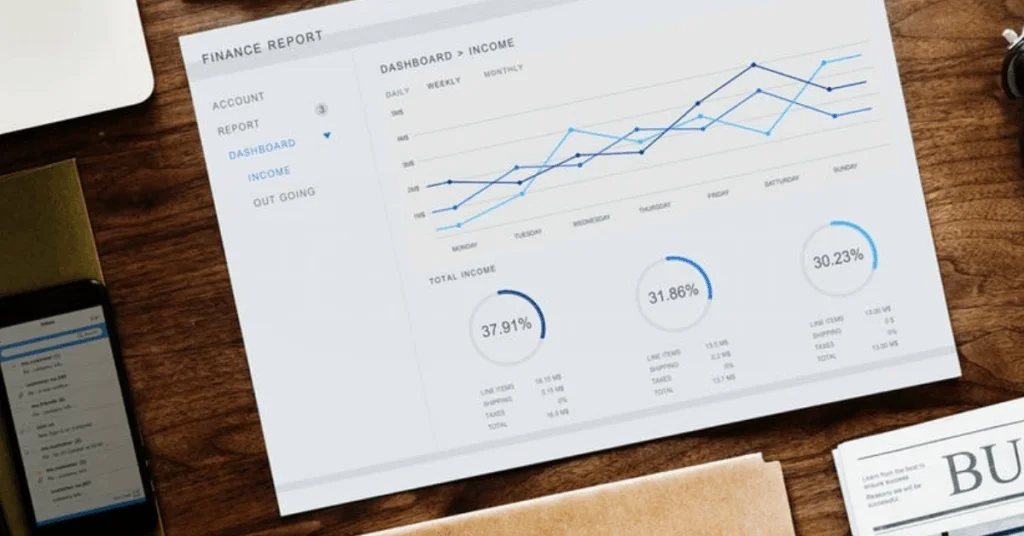
Create a Savings Cushion
But to lay the foundation for that I had a lot of pieces of the puzzle I had to put together. One of those which is incredibly important, if anyone’s ever thinking about leaving a job to pursue an entrepreneurial endeavour full time, have a savings cushion. I’d had about $50,000 probably in cash available had I really needed to get to it in savings. And at the same time I went full time, we moved from Oregon to California and sold our house. We put down 40% when we purchased our house so we had a lot of equity. The value went up about 20% when we were there so when we sold our house we got a huge big cash payout. And that’s sitting at a bank account. I haven’t had to really touch any of it. But knowing the risk of, while I’m gonna be trying to live off of this thing that had been about 30% of my income I could need the supplement and I could need more money, and knock on wood, I haven’t had to yet. But it’s still possible.
So we do have a big cash savings to fall back on, an emergency fund. It was just like leaping off a cliff with no parachute. I had a parachute and a reserved parachute and a swimming pool down below or a trampoline or something. So it wasn’t like this was such a huge risk as it might sound like. Though it was obviously a big risk walking away from a senior financial analyst role of a Fortune 500 company. It was a big paycheck and good health insurance and retirement account matching and all these other benefits that I don’t have anymore. But that is another piece the puzzle. What do you do for benefits? I have paused my retirement account contributions right now which I’m kind of bummed about it’s part of the transition. And once I build this income back up to where I want it to be I’ll get that going again and once we paid off some of the bills from the move.
Insurance was something… there was no way that I could go without insurance. One, because it’s illegal and two, because it’ stupid. This is a huge thanks to Obama Care. Without Obama Care I would not have been able to leave my job and be full time self-employed. So thank you to all of the Congress people and President Obama for making it happen. But now our insurance, it costs a lot more. I was paying, I don’t know, $250 a month, something like that, for my family’s insurance before. And now it’s more like $800 a month. The company, my business, is paying for it so it’s tax deductible but that’s still $800 I have to come up with every month for health and dental. We don’t have vision insurance anymore. There were some things that we said, oh we really don’t need this anymore. But obviously we really needed health insurance and dental insurance. And I do have medications and prescriptions so I didn’t want the lowest level plan. We ended up with the Silver Plan so that’s our new insurance. It was something important to us that we have to pay for it.
Be Ready to Hustle
So why am I telling you about all these costs, you now I had to pay rent, we have to pay all these things, didn’t want to touch our savings…so the biggest thing I was ready to do when I left that job is prepare to hustle. And if you are ever thinking about leaving a job to go full time working for yourself, you have to be ready to hustle. Nothing will happen for itself. When you have a Fortune 500 job and in IT or finance, there might be days that you’re so busy you’re in for 12 hours or more and you’re stressed and you don’t know what to do and life seems hard. And then there’s other days where you bust your butt and get a lot done and I don’t know, you sit on Facebook or stare at you phone for a day. There are no days like that. Well I can have days like that if I want but I’m not gonna get paid. I only get paid if I’m working and producing something.
So efficiency is key and being ready to hustle is key because if I’m not working hard I’m not getting paid. And if I’m not working hard I’m not getting new clients, I’m not expanding and building my business. They’re not gonna be happy with me so I’d lose clients. You have to be ready to hustle. So part of that, I found, I’ve only been doing this a month so I’m not the greatest expert in self-employment just yet, but a huge part that I’ve enjoyed is trying to make a point to enjoy the flexibility of being able to work where I want and when I want and using that as motivation to get done what I had to get done.
For example, yesterday I had to write an article about a topic that wasn’t super enthralling or exciting to me or probably many other people. I was targeting a very niched market of an insurance related industry. So I wrote this article and to the people who it’s targeted towards I hope it is very exciting, but I wasn’t all jazzed about it. I wasn’t writing something like, I don’t know something for Buzzfeed, it wasn’t a fun light topic. It was pretty dense. But I thought, well if I don’t do this hard work today I won’t be able to, I’d lose the client, I wouldn’t be able to do things like today where I played with my daughter for a half hour in the middle of the afternoon in between projects. Or when I walked down the street to the store because I live in a place where I can do that now and I didn’t have to wait for a boss to say it’s okay or for my lunch break, I needed something I went and took care of it.
So I used that flexibility, I used that last week, last two weeks actually. I was in London and Paris, I guess I’m playing and working but I wouldn’t have been able to do that if I didn’t have this job. But if I didn’t work hard I wouldn’t have been able to do it either. It’s like a chicken and an egg thing. I couldn’t take the vacation without the job but I wouldn’t have the job if , I guess I would have the job without the vacation. But you see what I’m saying, I wanted to be able to pay for that trip and to do that I worked while I was there. I was in Airbnb in London and I woke up every morning I figured out the morning was really the time I had to write an article. So I got up and I wrote and then my wife edited it. She is an excellent editor. Thank you, honey if you’re listening. My wife edited the articles and then I’d submit them and I did that at least once a day. And yeah, it’s no fun to look out the window at the beautiful weather in London and know you’re less than a 10-minute walk away from St. Paul’s Cathedral and some of the greatest museums in the world, amazing history and pubs, everything London has to offer. Just going out and talking to people who have a British accent. That’s just fun.
I had to focus and work and hustle and get that done and keep on hustling and that allowed me to have that trip. And now I’m home and I’m gonna go on another trip actually. Next week I’m headed off to the deep south, to Arkansas. And then I’ll be back and I’ll be hustling again. So you have to keep that hustle up.
And the way that I would recommend anyone who’s considering doing this is start the way I started. Make a few bucks on the side. It all started for me with that first dollar and that first project and that first client. And whether your side hustle is something that would be like, me I keep talking about financial writing and web design cause that’s my bread and butter, but obviously that’s not the same for everybody. But you’re good at something. You could write about something or if you hate writing you could learn a coding language, you could build apps, you could do graphic design. You go to sites like Upwork and Fiverr, there’s tons of gigs out there. Look for what other people are doing well in and if that’s something that you know how to do then you can do it. Stay tuned I have a great post in the works on all these ideas to make your first dollar on the side.
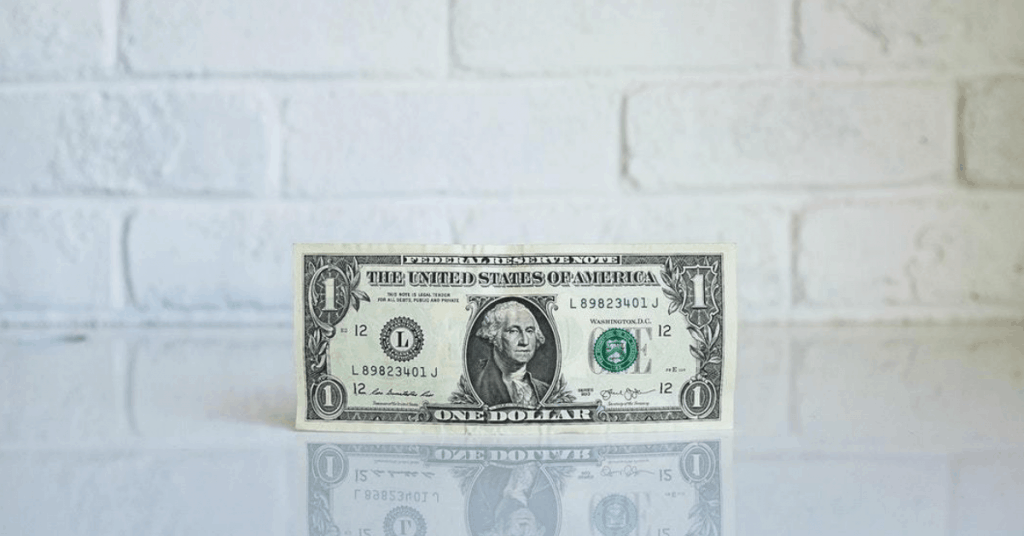
Work on Earning that First Dollar on the Side
But to really know what work you need to do to succeed on your own, you have to succeed on your own a little bit first. I would do that by keeping that safety net of your full time job and working hard and building up that side income until you realize, oh I’m at a point now that maybe I could give it a go. And that’s exactly what I did. As a result I just put out last week my monthly online report. And I earned enough last week or last month, sorry, in April that would give me a run rate for $77,000 a year. It’s not quite what I was making on my day job before but it’s pretty darn close. I’m hoping within a couple of months I’ll exceed that and within a few more months exceed where I was at combined on the side before between my day job and what was my side gig that is now my full time gig.
Like I said, give it a try. See what you can do earning a few bucks on the side. You might be surprised to see how well that grows. And if it doesn’t grow it’s just a nice way to have a little more money to do things like pay off a student loan or save extra for retirement. If you’re in your late 40s and you’re worried how you’re gonna put more money away for retirement. Maybe make a few more bucks and put that money into an IRA or a Roth IRA. Or maybe you want to add a swimming pool or buy a hot tub for your house or take more vacations. And you can’t figure out how to afford it. Well maybe earn a little more. Obviously budgeting is a huge part of personal finance. The only path to personal profitability is to spend less than you earn. And the two levers there are either is to earn more or spend less or a combination of both.
So today we talked about earning more. You also have to remember to spend mindfully to really reach the level of financial success that I think we all want to achieve.
So that’s my story for today and it answers the list of questions that I’ve received lately. As always if you have any questions for me shoot me an email, [email protected]. That does not go to a VA. It does not go to any kind of assistant. It comes right to me and I read every single email. If you have a question I always respond. It might take a little while but I always do it. I’m sure there’s listeners out there right now who I’ve responded to before. As always, thank you for reaching out. You guys give me the inspiration to keep going.
If you are inspired or enjoy what you hear and hear here, what you hear on this podcast, I don’t do any marketing, I don’t have any outreach for this. The only marketing that I have is you and that’s word of mouth. So please if this helps you at all or anything I’ve done has helped you at all, share it with a friend. Take a few minutes, give us a rating on iTunes. I hope to get a five star review and a few kind words. Anything that you can do to help put the word out. It doesn’t cost you anything more than a few minutes but it means the world to me.
So thank you all so very much for listening to today’s episode and bearing with my hoarse voice that’s dying as we go. The train is going off in the distant telling me it’s time to end this episode. So thanks all for listening up here until the end. And until next time, stay profitable.
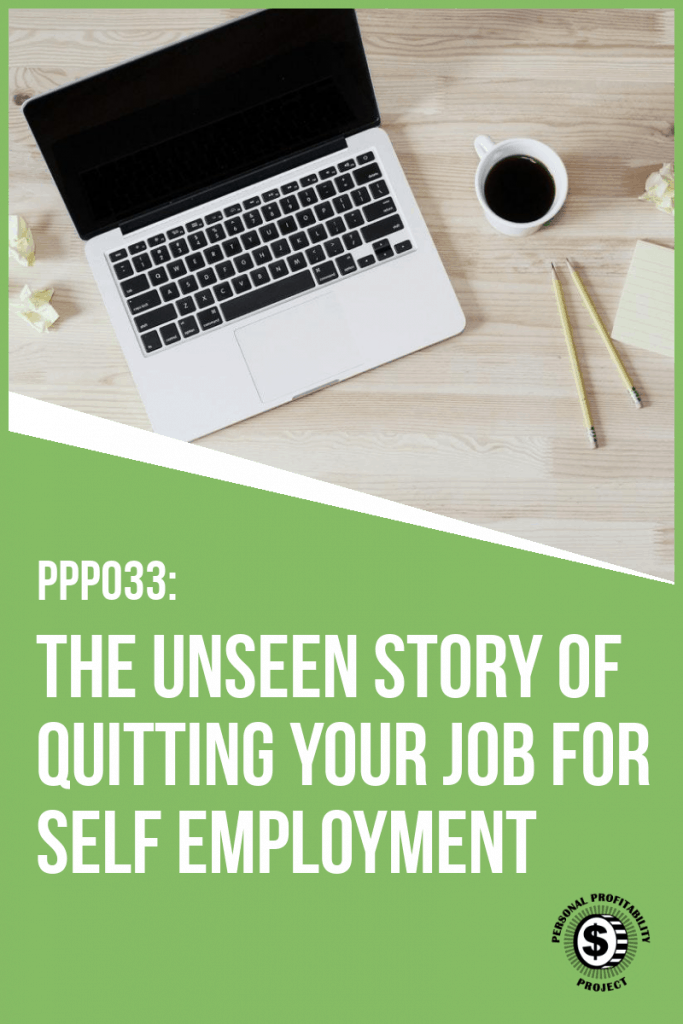
This post was originally published on May 19,
